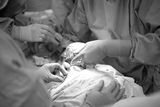‘I wasn’t treated properly’ – Frontline worker says he has still not received Government’s €1,000 Covid bonus


AT the height of the pandemic, care worker John Bracken visited the homes of people with disabilities and helped them get up, get breakfast and get ready for the day ahead.
He transferred patients and delivered Covid tests to and from labs for nursing homes and hospitals.
But the programme assistant and driver who has worked for the Irish Wheelchair Association for over 20 years, is not among thousands of workers honoured for their contribution with a special €1,000 Covid recognition bonus.
The government payment, which was announced two years ago, has been made to thousands of HSE and private sector workers who were in direct contact with patients during the pandemic.
He was, however, presented with a HSE recognition certificate at a ceremony in Punchestown.
It honours the father-of-two’s “outstanding contribution and dedication” to the HSE Dublin, South Kildare and West Wicklow community healthcare Covid-19 pandemic response.
“I was frontline,” he said.
“I don’t know how they can single me out. It’s really the recognition I want. You can blow €1,000 in a weekend. I’m after the recognition. I put myself out there, above and beyond, that’s why I feel so hard done by and feel I wasn’t treated properly.”
The care worker, who is based in Clane, Co Kildare, said he stepped in to visit people’s homes because there was a shortage of personal assistants.
“Some were sick because of Covid,” he said. “I had to stand in as a PA and go into homes and give people breakfast, and help them get dressed and have a shower. If I didn’t go in, they wouldn’t have got up in the morning. I’ve done a lot of stuff that is not really in my remit.
“I was going into the nursing homes. Unfortunately people were dying, and I was going in to pick up the Covid tests and deliver them. I made sure these tests were picked up and went to the lab on that same day. It was very important work I did for two years but when it came to the €1,000 it was like I didn’t exist. I volunteered to do this work but feel I was used and abused.”
He said he feels worse because he has not received full payment of increases due to workers in state-funded ‘section 39’ organisations, which were agreed after they threatened to strike.
His job involves picking up wheelchair users. Many have had strokes or might have cerebral palsy, he said.
“We bring them to the day centre and they get a cup of tea, brown bread, or a scone and do activities. “We play a game called Boccia, which is like boules. They love it here. I pick them up from down Longwood, Enfield, Naas, and Leixlip.”
Brendan Carr, Siptu sector organiser, said its members at the Irish Wheelchair Association are rightly outraged to be “owed” a well-deserved Covid recognition payment.
He said a small number of staff did not get the payment despite working directly for the HSE.
“These staff played a vital role throughout the pandemic, keeping essential services running at great risk to themselves and their families,” he said.
“Denying them is a slap in the face and a complete disregard for their hard work and sacrifice,” he said.
A HSE spokesperson said the government once off pandemic payment recognised certain frontline public sector healthcare workers’ unique role during the pandemic.
She said eligibility criteria were extended to include workers in ‘section 39’ long-term residential care facilities for people with disabilities who work on site, private sector nursing homes, agency staff in the HSE, and health care support assistants contracted to the HSE.
“Only those staff who meet all of the above eligibility criteria are covered for this payment,” she said.
She said the HSE appreciates that many other workers, volunteers and citizens provided important services during this difficult time.
“While this is not questioned, it is important to recognise that this in itself is not sufficient to be considered eligible for this payment,” she said.
“The government appreciates that those organisations and staff who are not encompassed for this particular payment may feel disappointed.
“While undoubtedly immense efforts have been made by other healthcare staff since the onset of this pandemic, it is right that the government pursue this course to recognise those at greatest risk in the performance of their duties throughout the pandemic, including those who worked in the very acutely affected environments outlined above.”
The HSE spokesperson said it cannot comment on individual cases as it would breach its ethical duty to maintain the individual’s right to privacy.
Join the Irish Independent WhatsApp channel
Stay up to date with all the latest news










